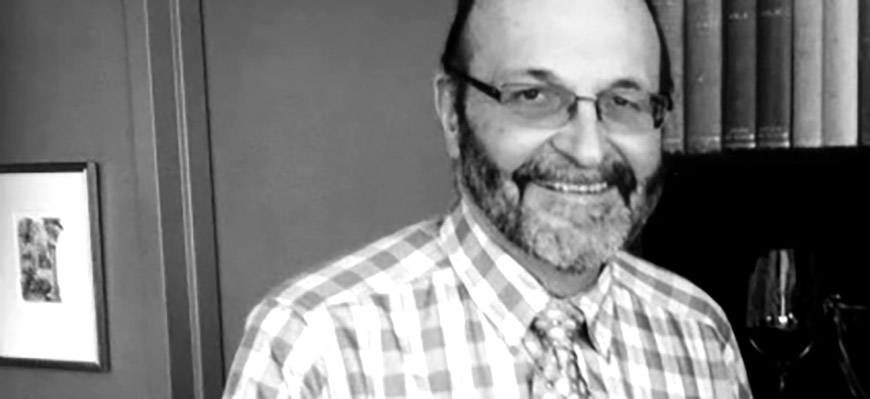By Cassidy Herrington
At Niagara, summer is the busiest season for Turkey trips. Each month, our directors alternate traveling from Chicago to Istanbul for excursions focused on establishing intercultural conversations and relationships.
Niagara Foundation takes around 350 people to Turkey every year, and Niagara’s Chicago office alone has lead 10 to 15 groups every year since 2004. Each group’s itinerary is customized to meet the professional interests and expertise of the travelers. The Turkey travelers I’ve met tell me the trips are “life-changing” and “you just have to go to understand.” I’m a bit off-put by my incapacity to understand their experiences.
While my colleagues were leading a trip last week, my curiosity got the best of me. I decided to step outside Niagara’s office to hear more about these trips and what makes them so unique. I thought, surely, a history professor could help demystify the Turkey conundrum.
Roosevelt University President Chuck Middleton traveled with a group, which included Roosevelt Board of Trustees Chairman Jim Mitchell and seven board members, in 2009. During their trip, they visited Fatih University in Istanbul. The two universities have since established an international exchange partnership for students to study abroad in the U.S. and Turkey.
What opportunities did your trip create for you and Roosevelt?
New opportunities for international scholars and students to talk about fundamental values, like conferences that promote collaboration. And of course, opportunities to go to Turkey and to experience how Turkish people have the same values, and because of the cultural differences express them differently.
There’s more collaboration that without which, we wouldn’t have opportunities to learn about Turkish and Muslim cultures in the same we way we have had through Niagara Foundation.
What values, in particular?
Tolerance and human understanding across international boundaries.
Since our university’s foundation in 1945, we were explicitly created as a place of tolerance, acceptance, non-discrimination and opportunity for people, irrespective of their personal background, religion, race or ethnicity.
From the very beginning, it’s been in our DNA to be an inclusive place seeking to do good by engaging people and giving them opportunities to earn a college degree. It’s the critical component that Roosevelt and the Niagara Foundation have in common.
How does that translate on an international scale?
The notion of peace and justice internationally is part of this bigger tapestry we’ve been writing on domestically. Take the university’s namesakes, Franklin and Eleanor Roosevelt. We are an extension of their domestic values and their international values, as expressed in the Universal Declaration of International Human Rights.
In broad terms, I think peaceful people pursuing peaceful domestic and international opportunities will provide for more safety, more inclusivity, more opportunity than warring people who are mutual suspicious and morally antagonistic.
Before your trip, you had traveled to nearly 44 countries, including a few in the Middle East. What was particularly unique about Turkey?
For starters, I can hardly wait to go back.
After talking with people who we would have never met, had it not been for Niagara Foundation, I noticed what’s the same — in terms of what people aspire for.
We spoke with businessmen and women, religious leaders, journalists — all people doing important, everyday jobs and living every day lives. They talked about their aspirations for their children, for their country, and for the world. And they all talked about these things in the context of inclusivity.
For me, this was a very powerful experience because it reminded me that we are far more alike than different.
Given your expertise as a historian, did you discover anything new, in terms of culture or history?
I learned a great deal about Muslim culture —how multi-faceted it is and how many different expressions there are. I saw how deeply religious Turkish Muslims are and how deep their faith is in determining determine how they live their lives in a good and productive manner. That was very clear and self-evident in their work.
I got to visit all of these famous places that I used to write about, since I do British history. I used to say the “sublime port,” not knowing exactly what that was, and now I’ve been there. I visited the palaces, saw were Suleiman the Magnificent was, and walked on the walls of Istanbul. For me, it was like living in the 14th century.
I also deepened my understanding of the historical role that Turkey has played in the broader sweep of global politics and the extent to which they continue to play today, in important ways for global peace and security.
What was the most moving part of your trip?
We ate dinner one evening with locals on and outdoor patio that overlooked the Aegean Sea. Afterwards, we walked along the beach for 35 minutes and watched the tide coming in.
I remember thinking, ‘I’ve had this experience many times before.’ Along the coast of Italy, the West Coast of Florida, along the English Channel — all places that share a coast. I had the same feeling as I did in any one of those other places.
The only difference was, I knew I was in Turkey because I had just had an amazing meal.

